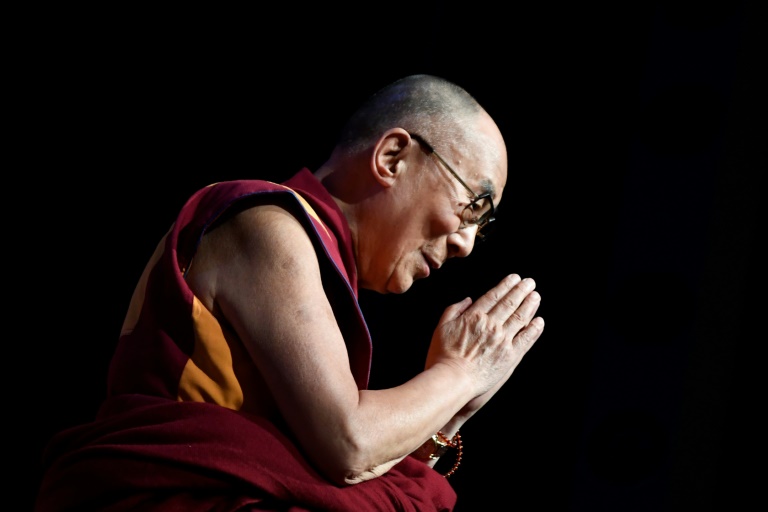New Delhi: The Dalai Lama left a New Delhi hospital Friday after three days of treatment for a chest infection, but the 83-year-old will need several days of rest before returning to his Himalayan base, his spokesman said.
“His Holiness the Dalai Lama was discharged from the hospital this morning,” Tenzin Taklha told AFP. “He is doing very well now.”
“He has recovered from the chest infection he had suffered from and will be taking several days of rest in Delhi before returning to Dharamsala,” he added.
The Buddhist monk, Tibetan spiritual leader and thorn in China’s side was admitted to the Max hospital in the Indian capital Tuesday.
Thursday Taklha had said that the Nobel Peace Prize winner was already back to his “normal routine” and doing some exercise.
The Nobel Peace Prize winner lives in the northern Indian hill station of Dharamsala, where he has been in permanent exile for six decades along with thousands of others.
In 1959, at the age of 23, he fled the Tibetan capital Lhasa and across the frozen Himalayan border, disguised as a soldier, as Chinese troops poured into the region to crush an uprising.
In India he set up a government-in-exile and launched a campaign to reclaim Tibet that gradually evolved into an appeal for greater autonomy — the so-called “middle way” approach.
The self-described “simple Buddhist monk” has spent decades criss-crossing the globe mixing with monarchs, politicians and Hollywood actors pressing his case.
His status as a global symbol of peace whose message transcends faith has earned comparisons to visionaries like Mahatma Gandhi and Martin Luther King.
But he has also drawn the fury of an increasingly assertive China, branding him a “wolf in a monk’s robe” and accusing him of trying to split the nation.
Although still a hugely popular speaker, he has cut back on his global engagements and has not met a world leader since 2016 — while governments have been wary of extending invitations to him for fear of angering Beijing.
Even India, which gave him asylum in 1959, has turned its back, with Prime Minister Narendra Modi’s government reportedly warning officials against attending events featuring him, citing diplomatic sensitivities.
His admission to hospital this week, attracted widespread media interest and a flood of wishes of good will on social media, also served as a reminder that the question of his succession is far from clear.
The Dalai Lama has sought to pre-empt any attempt by Beijing — which has effectively wiped out organised opposition to its rule in Tibet — to name his reincarnated successor, even announcing in 2011 that he may be the last in the lineage.
The Tibetan spiritual leader enjoys wide support across the partisan divide in Washington, where a senator raised the issue of his succession at a hearing Tuesday.
Senator Cory Gardner, the Republican who heads the Senate Foreign Relations subcommittee on Asia, said that the United States should follow the Dalai Lama’s lead on how to choose his successor.
“Let me be very clear — the United States Congress will never recognise a Dalai Lama that is selected by the Chinese,” Gardner said.
AFP
